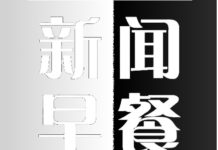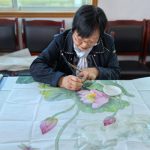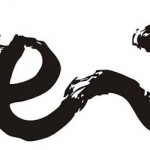
致联合国教科文组织的公开信: 建议设立“世界龙日”(World Loong Day)中英文对照
联合国教育、科学及文化组织(United Nations Educational, Scientific and Cultural Organization):
在和煦美好的春天里,我们向贵组织致信,建议参照“世界环境日”、“世界人口日”和“世界水日”等世界性节日之设立,将中国农历二月初二日的“龙头节”(公历每年二月至三月间某日)设立为“世界龙日”(World Loongs Day)。
The “Loong Festival” falls on the second day of the second month of the Chinese lunar calendar. This is a date that each year in the Gregorian calendar, falls between February and March. We are writing to your organization to suggest that a festival, be created as “World Loong Day”, similar to other world festivals such as “World Environment Day”, “World Population Day” and “World Water Day”, etc.
龙是中华民族对自然界中的众多动物和天象经过多元容合而发明、展现的神物,其实质是对宇宙自然力的感悟、认知、神化。中国人大都崇龙、爱龙,把龙作为民族的精神象征和文化标志,认为自己是人文意义上的“龙的传人”。“龙头节”也称“春龙节”等,是中国人传承了上千年的敬祀龙神的日子,民谣唱曰:“二月二,龙抬头,大仓满,小仓流。”
Loong is a deity created by the Chinese nation to represent the integration of many animals and miraculous phenomena in nature. Its essence is the perception, cognition and deification of the universe’s natural forces. Most Chinese people worship and love Loong, and regard Loong as the spiritual and cultural symbol of the nation. They consider themselves as the “descendants of Loong”. For thousands of years, “Loong Head Festival”, also known as “Spring Loong Festival” and so on, has been a day to worship the God of Loong. A folk song says: “On the second day of the second month of the Chinese lunar calendar, the God of Loong heads up. Big granaries will be full, small granaries will be fuller.”
中华民族是世界上人口最多的崇龙、爱龙民族。目前海外华人华侨有六千多万人,分布在世界近两百个国家和地区,他们把源远流长、博大精深的龙文化,以及崇龙、爱龙的习俗如舞龙、赛龙舟等传衍到世界各地,龙文化已然成为世界性文化。
China is one of the most populous nations in the world. The Chinese nation loves and worships Loong. Furthermore, there are more than 60 million Chinese living in nearly 200 countries and regions around the world. The Chinese have spread their love of Loong and Loong culture to all parts of the world. Customs of Loong worship include Loong dancing, and Loong boat racing. Loong culture has been spread worldwide.
联合国教科文组织(UNESCO)是联合国在国际教育、科学和文化领域成员最多的专门机构,其宗旨是通过教育、科学和文化促进各国合作,对世界和平和安全作出贡献,将“龙头节”作为“世界龙日”,符合这样的宗旨。
UNESCO is the specialized agency of the United Nations with the largest membership in the fields of international education, science and culture. Its purpose is to promote cooperation, peace and security among nations through education, science and cultural understanding. The creation of a “World Loong Day” is in line with such a purpose.
龙文化经过至少八千年的发展,已形成“容合(兼容、包容、综合、化合)、福生、谐天、奋进”的精神内涵。这些精神内涵,与以相互依存的国际权力观、共同利益观、可持续发展观和全球治理观为内容的全球价值观相契合。
Chinese Loong culture has developed for at least eight thousand years. This culture implies inclusiveness, tolerance, harmony, blessings and forging ahead. These spiritual connotations are consistent with our interdependent global values of common interests, sustainable development, and of global governance.
目前,全人类已进入由世界多极化、经济全球化、文化多样化和社会信息化构成的纷纭复杂的国际社会,地球村人只有团结合作,才能应对由疫疾流行、粮食安全、资源短缺、气候变化、网络攻击、人口爆炸、环境污染、跨国犯罪、难民潮及宗教冲突等构成的对人类生存的严峻挑战。
At present, the entire human race is part of a diverse and complex international community consisting of multipolarization, economic globalization, cultural pluralism and conflicting information. The people of the global village can only unite and cooperate so as to meet the serious challenges to human survival posed by epidemic diseases, food insecurity, resource shortages, climate change, cyber attacks, population explosion, environmental pollution, transnational crime, refugee flows and religious conflicts.
将“龙头节”作为“世界龙日”,在此日开展各种积极有益的相关活动,有利于发扬龙的“容合、福生、谐天、奋进”的精神,增强地球村人的团结合作,以应对上述挑战。从文化交流会通、优质资源共享的角度看,此举可谓“华美美众,美美与共”。
The people of the global village will carry out various positive and beneficial activities in the name of “World Loong Day”. This special day will help carry forward the Loong’s spirit of “inclusion, blessing, harmony and forging ahead” and strengthen global unity and cooperation to meet the above-mentioned challenges. From the perspective of cultural exchanges and the sharing of positive cultural resources, this can be described as “Chinese beauty makes the world beautiful, and the world shares different nations’ beauty”.
需要说明的是,龙与西方文化中的dragon在本质、功能、形象上有重大区别:在中华文化中,龙是吉祥神物,地位崇高。尽管历史上有一些负面的承载,但发展至今,龙整体上已代表善和美,为人类奉献的基本上是福佑性、建设性的正能量。Dragon在西方文化中地位低下,是怪兽恶魔,是凶残、战祸、恐怖的象征,整体上代表着恶和丑,给人类提供的基本上是灾难性、破坏性的负能量,是被贬损、杀戮、镇压的对象。从形象看,龙头大嘴宽、肚细腹小、鳞片平顺柔和;dragon头小嘴尖、肚粗腹大、鳞甲生硬带刺,且生有蝙蝠翼状巨翅。整体观之,龙潇洒美观,dragon狰狞丑陋。
Loong at one time was mistaken for a “(Chinese) dragon”. What needs to be explained is, there are significant differences in essence, function and image between “Loong” in Chinese culture and “dragon” in Western culture. In Chinese culture, Loong is an auspicious god or mascot with a lofty status. Loong represents goodness and beauty. What it contributes to the world is basically a blessing and a constructive positive energy. Dragon in western culture has a low status. It is a monster, a demon, and also a symbol of ferocity, war and terror. On the whole, it represents evil and ugliness, providing mankind with basically a disastrous, and destructive, negative energy. It is something object to be feared, to be suppressed, and to be killed. Visually, a dragon has a small head, a sharp mouth, hard scales with spines, and it has huge bat-like wings. On the other hand, a Loong has a big head, a wide mouth, a thick and small belly, and smooth and soft scales. Visually, a Loong is handsome and beautiful while a dragon is hideous and ugly.
因此,“世界龙日”的英译应为:”World Loong Day”,而不是”World Dragon Day”。
Therefore, the day should be called “World Loong Day”, not “World Dragon Day”.
此建议,敬请中国联合国教科文组织全国委员会(北京)转呈。
This proposal is humbly forwarded to the United Nations Educational, Scientific and Cultural Organization.
建议者名单(不分先后):
庞进(中国陕西),黄佶(中国上海),王伟(中国甘肃),黄益苏(中国湖南),闸东山(中国湖北),龙黔石(中国北京),龙牧华(加拿大多伦多),刘穗安(加拿大多伦多),俞方(中国西安),田玉川(中国北京),赵晨宇(加拿大多伦多),王泽华(中国北京)、张博(中国西安)、刘文阁(中国西安)、陈忠宁(中国宁夏)、马克木(中国西安),李万光(中国北京),霍彦儒(中国陕西),陶鑫国(中国云南),庞远(中国广西),张钦萍(中国西安),董鹏(中国陕西),杨正合(中国湖北),陈崎(中国陕西),张世俊(中国西安),阎骏(中国陕西),高相海(中国陕西),高永生(中国陕西),刘来水(中国陕西),蔺安兴(中国陕西),刘丹影(中国陕西),庞先锋(中国西安),高华(中国西安),刘公(中国西安),李清(中国西安),王根信(中国西安),朱宝琦(中国西安),庞岭(中国西安),释宏深(中国陕西),庞顺兴(中国贵州),任世焦(中国北京),复蓄(中国吉林),吴常茵(中国吉林),孙国宏(中国西安),田苏辉(中国西安),刘平安(中国陕西),任釜辰(中国浙江),汪潮(中国湖北),葛党固(中国陕西),姬顺利(中国北京),田万里(中国河南),张方亮(中国陕西),孙扬(中国西安),区伯(中国陕西),吴树民(中国陕西),郑世骅(中国陕西),刘成章(中国北京),王科(中国陕西),郑毫毫(中国广东),师银笙(中国陕西),张燕(中国西安),张志春(中国陕西),张明珠(中国陕西),庞全世(中国青海),乔盛(中国北京),李爱霞(中国陕西),李鸿仪(中国西安),张展茂(中国西安),黄业盛(中国广西),孙念正(中国西安),张鹏(中国广东),刘孝义(中国甘肃),辛格立(中国上海),张道建(中国江苏)……(庞进撰文,王伟翻译,Jack Wynberg英文编辑;黄佶编辑配图,2021年3月11日)











